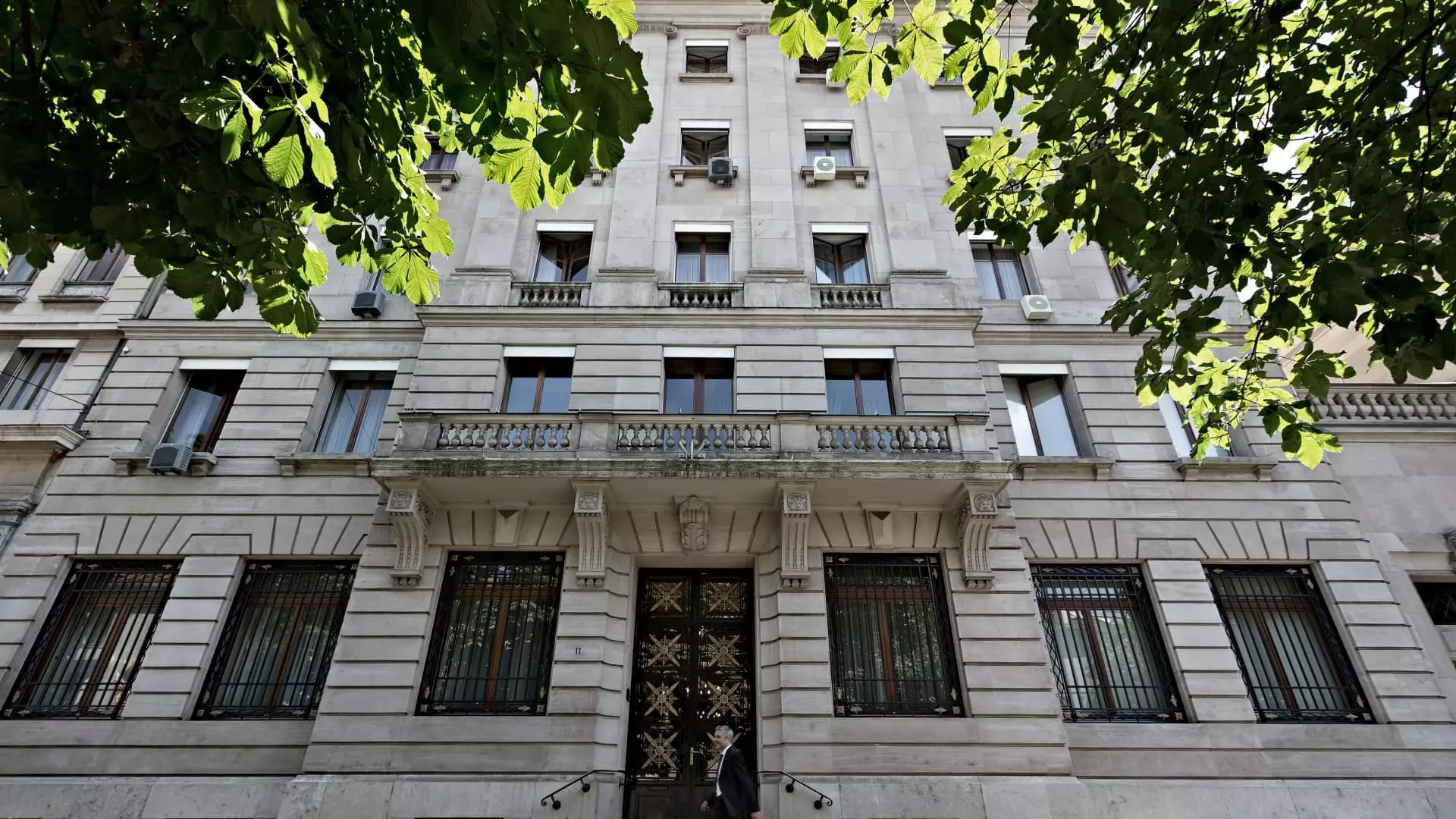Founded in 1796, Lombard Odier is one of Switzerland’s venerable private banking institutions, built on a foundation of wealth management and financial services. Its long-standing reputation has been one of integrity and excellence. However, recent allegations threaten to overshadow this history. In a significant turn of events, the Swiss Attorney General’s Office (OAG) has indicted the bank on charges of aggravated money laundering, which come as a shock given the institution’s legacy and prominence in the financial sector.
On a fateful Tuesday, prosecutors announced the indictment against Lombard Odier and a former employee connected to the institution. The allegations suggest that the bank played an instrumental role in facilitating the concealment of illicit funds associated with Gulnara Karimova—daughter of the late Uzbek president Islam Karimov. The alleged activities occurred between 2005 and 2012, during which significant sums linked to criminal enterprises were purportedly laundered through Swiss banking channels. Karimova herself is facing serious legal challenges and is currently imprisoned in Uzbekistan, underscoring the high stakes surrounding this situation.
The OAG’s statements suggest a depth of evidence gathered over years of investigation, beginning in 2016. The prosecutors position that Lombard Odier and its former employee utilized bank accounts within their Geneva operations to facilitate the laundering of funds linked to the criminal activities of an organization known as “The Office.” This development not only places Lombard Odier under the microscope of Swiss law but also raises questions about their operational practices and compliance measures against money laundering.
In the face of these serious allegations, Lombard Odier has been quick to issue a rebuttal, insisting that the claims are baseless. The bank stressed that they had reported suspicions regarding potentially illicit activities to authorities, marking a proactive stance against wrongdoing. Despite this defense, the repercussions of the indictment are likely to impact the bank’s reputation and client trust. Lombard Odier has vowed to contest the accusations vigorously, signaling an intent to clear its name in what appears to be an escalating legal battle.
The indictment of such a prestigious banking institution poses significant ramifications for the Swiss banking sector at large, which has historically prided itself on stringent financial regulation and compliance. The scandal casts a long shadow over the industry, potentially eroding trust among clients and international partners. As regulatory scrutiny intensifies, the banking community will closely monitor the developments of this case, as it may set precedents for how similar allegations are handled in the future.
As the situation unfolds, Lombard Odier’s future hangs in the balance, caught between defending its historical reputation and the serious claims brought against it. The intricate web of international finance, coupled with challenges stemming from criminal activities, highlights the ongoing struggle of banks to enforce rigorous compliance while navigating complex global markets. This case serves as a reminder of the constant vigilance required against financial crime, especially within institutions that have maintained a storied presence in the financial landscape for centuries.

